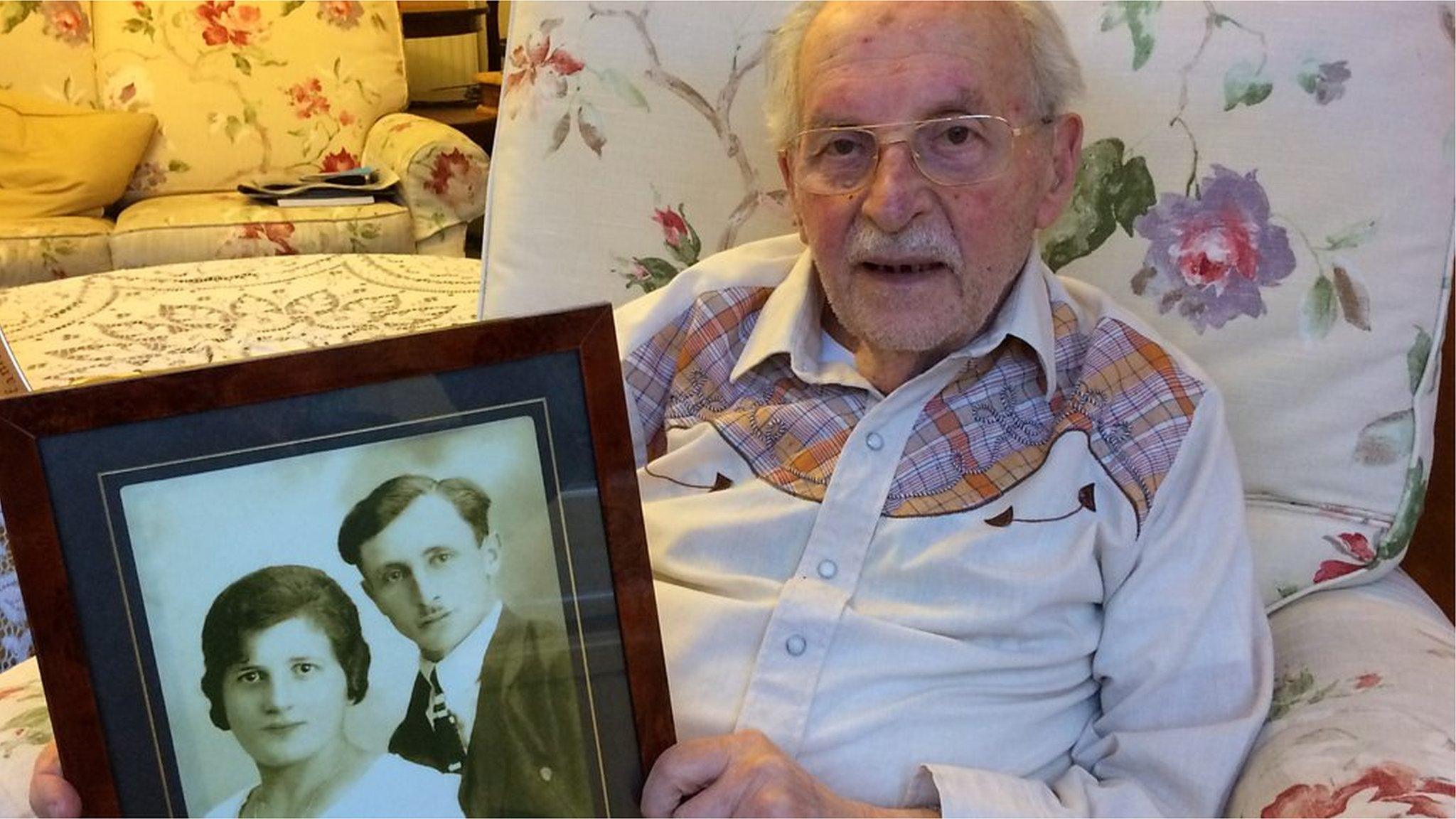Kindertransport statue to mark WWII refugees' arrival in Harwich
- Published
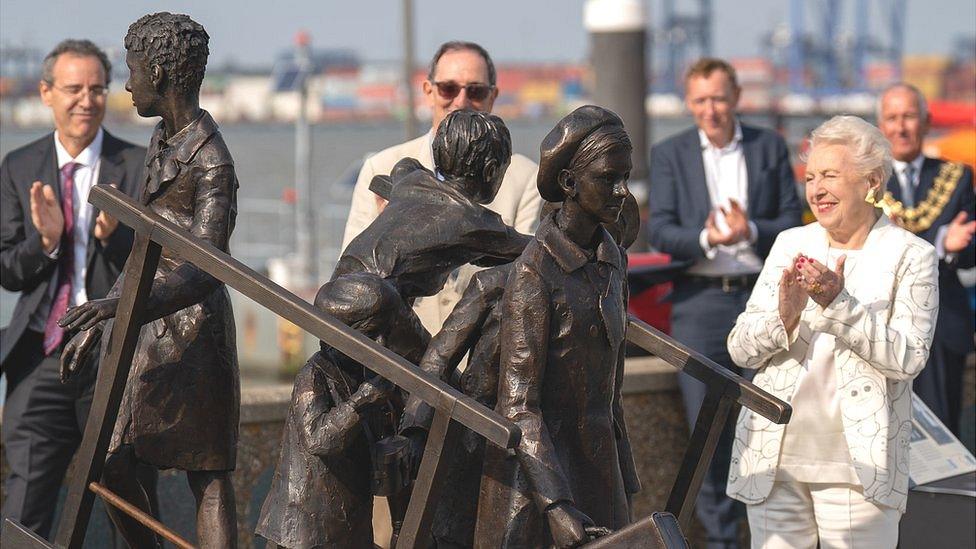
Harwich was the main point of entry for most of the 10,000 children who came to Britain from Nazi occupied territories on the Kindertransport
A memorial has been unveiled to mark the arrival of 10,000 children to the UK who sought safety from Nazi Germany before the start of World War Two.
The bronze statue by artist Ian Wolter, external has gone up at Harwich quayside.
The first children arrived at the Essex port on 2 December 1938, with some taken to London and others to local holiday camps such as Dovercourt Bay.
Guests at the unveiling of the statue included more than 30 refugees who arrived on the Kindertransport.
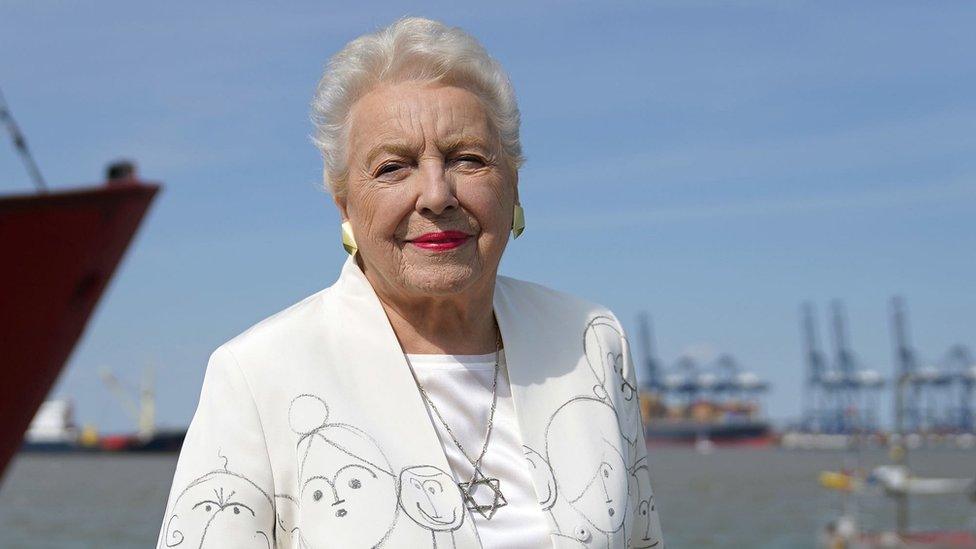
Dame Stephanie Shirley was among the guests at the unveiling of the Kindertransport memorial
The statue was unveiled by Dame Stephanie Shirley, external, a refugee who arrived at the age of five, in Harwich, as part of the rescue mission.
The IT pioneer and philanthropist said: "I shall never forget my first sighting of Harwich as a thousand of us children came in from the grey North Sea after a horrendous two-and-a-half day journey from Nazi Europe."
Mike Levy, chair of the Harwich Kindertransport Memorial and Learning Trust (HKMLT), said: "Now Harwich can take its full place in this remarkable part of British history.
"With the unveiling today, in some ways, the journey of those children more than 80 years ago is complete.
"Today is a day of celebration, of commemoration, a looking back but also, we hope, a way of looking forward to a kinder future."
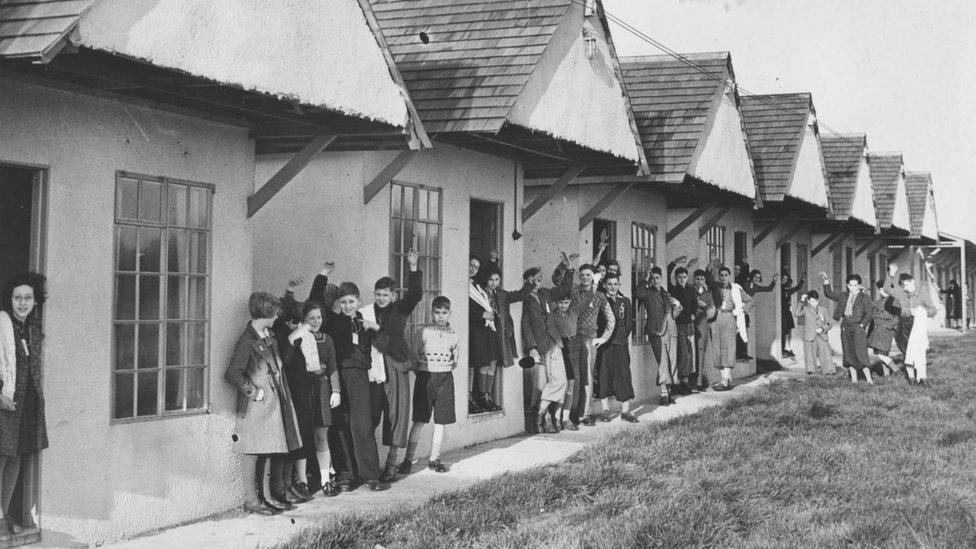
Many children were temporarily housed at Dovercourt Bay holiday camp in Harwich
Another former refugee attending the unveiling was Dr Vernon Katz.
"At 11 years of age I boarded the train in Bünde Germany, heading towards the Netherlands," said Dr Katz.
"When the train stopped, some nice Dutch ladies gave us biscuits and drinks, and then we continued to Hoek van Holland where we boarded a boat heading to England.
"On arriving in Harwich, after all we had been through, we thought English people were angels," he said.
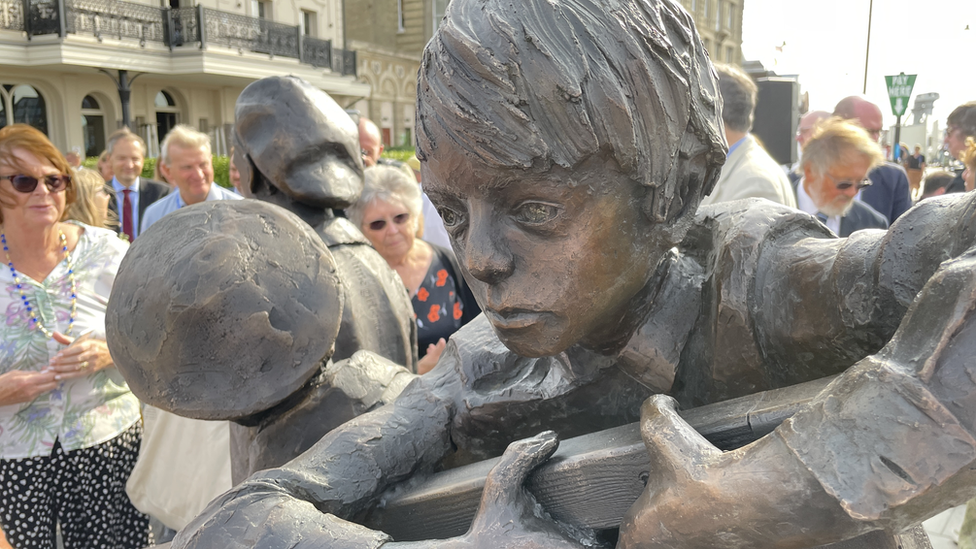
Artist Ian Wolter said it was important the sculpture captured the emotions of the children, many of whom would never see their parents again
Nearly 2,000 of the mostly Jewish children spent their first weeks at the Dovercourt holiday camp just two miles (3.2km) from the Harwich docks.
Existing memorials trace the journey of children from Germany, Austria, Czechoslovakia and Poland, via the Hook of Holland and on to London by rail.
However, Harwich was missing from these memorials, according to HKMLT, external which was behind the commissioning of the sculpture.
The HKMLT asked Ian Wolter to create a piece for Harwich after seeing a previous work of his about the refugee experience called The Children of Calais, external.
The artist, who is based in Saffron Walden, studied photographs and material from the era, and used models of a similar age to sculpt in clay.
Artist Ian Wolter said it was important the sculpture captured the emotions of the children, many of whom would never see their parents again.
"Fundamentally the memorial had to be about this place and the arrival, so I focused on the moment, the first foot arriving on dry land,on safe ground, so it all grew from there," he said.
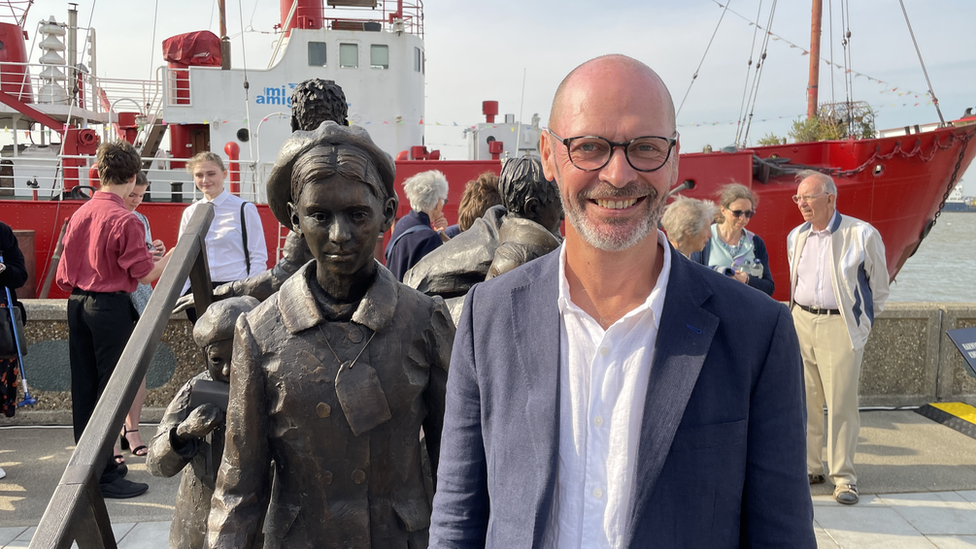
Artist Ian Wolter with the sculpture he created in memory of the refugee children who fled to Harwich from Nazi Germany
Funding of £160,000 for the statue came from several sources, including the German government and the Association of Jewish Refugees, external.
The ceremony was also attended by the German ambassador to the UK, and Lord Pickles, Brentwood and Ongar MP until 2017 and the UK Special Envoy for post-Holocaust issues.
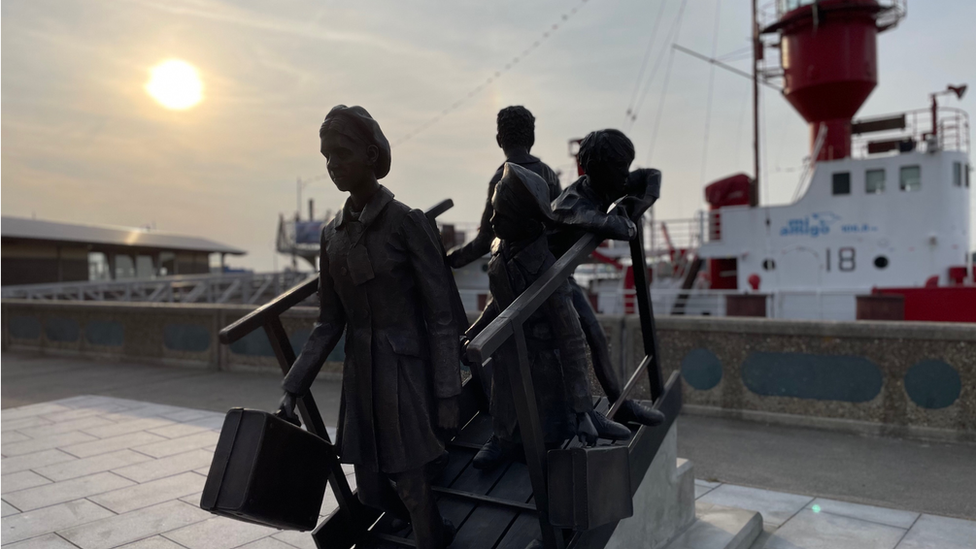
More than 30 refugees who arrived on the Kindertransport watched the unveiling of the statue
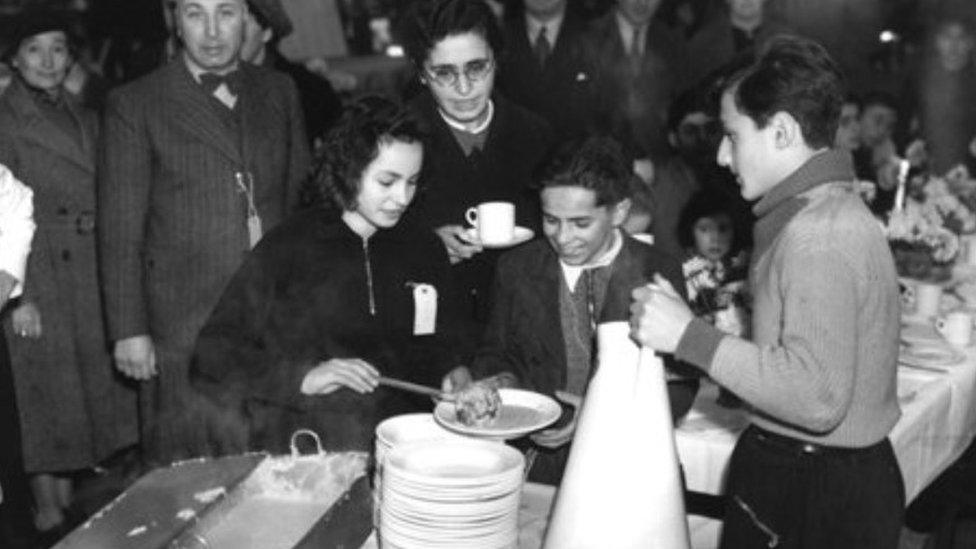
The first destination for many new arrivals was Dovercourt Bay holiday camp, near Harwich, where they enjoyed their first meal.

Find BBC News: East of England on Facebook, external, Instagram, external and Twitter, external. If you have a story suggestion email eastofenglandnews@bbc.co.uk, external
- Published21 June 2022
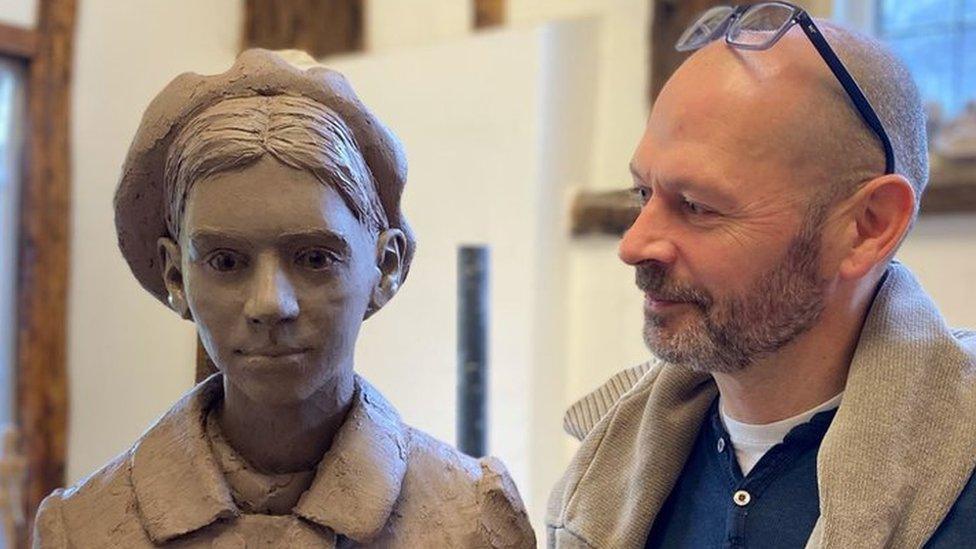
- Published1 December 2018
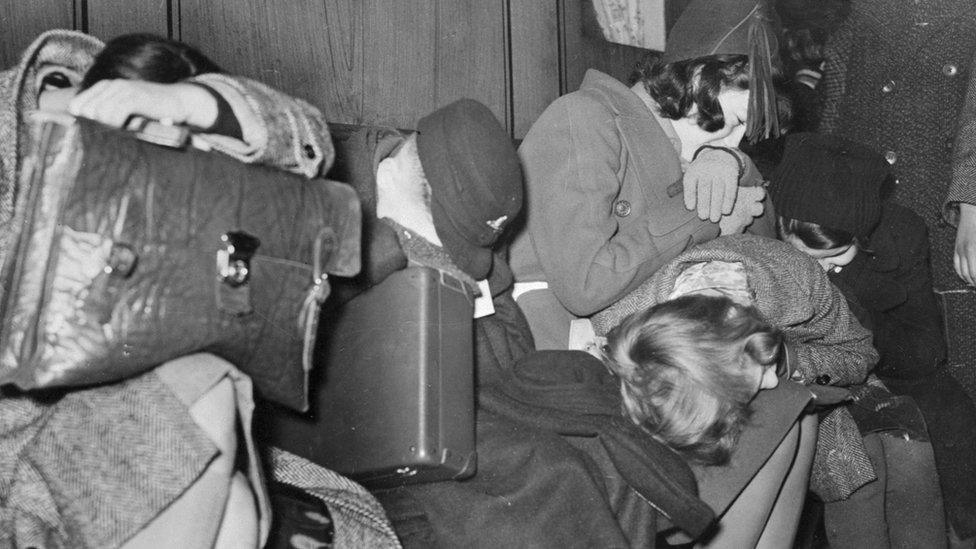
- Published18 November 2018
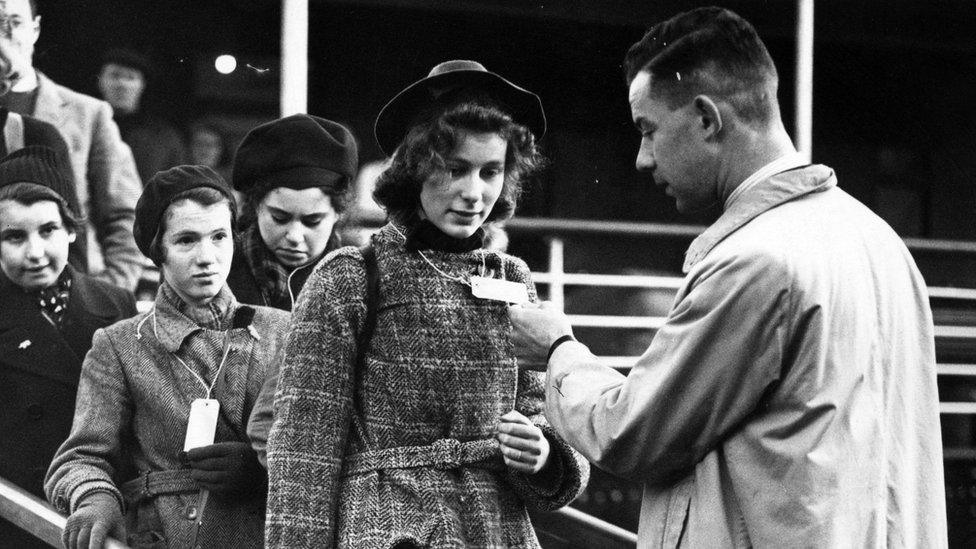
- Published22 June 2018
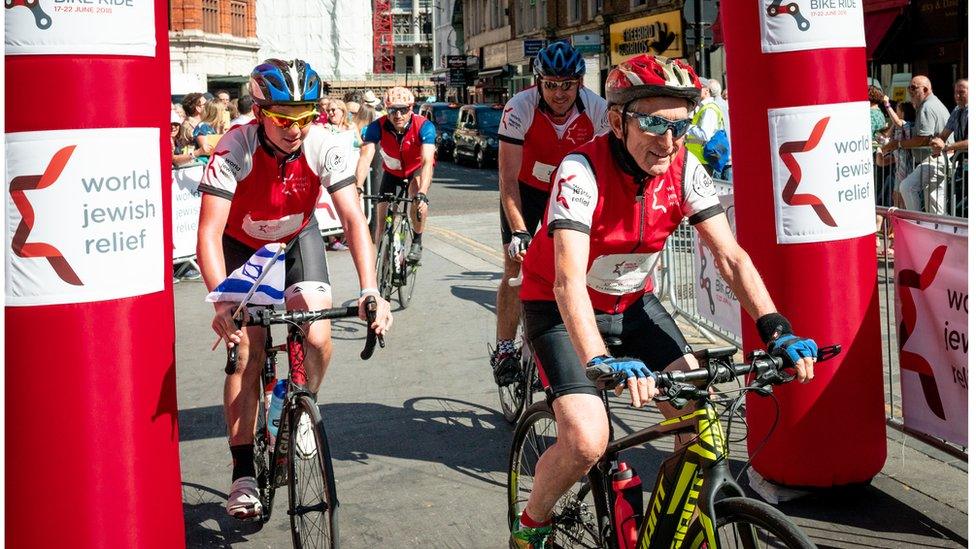
- Published29 January 2018
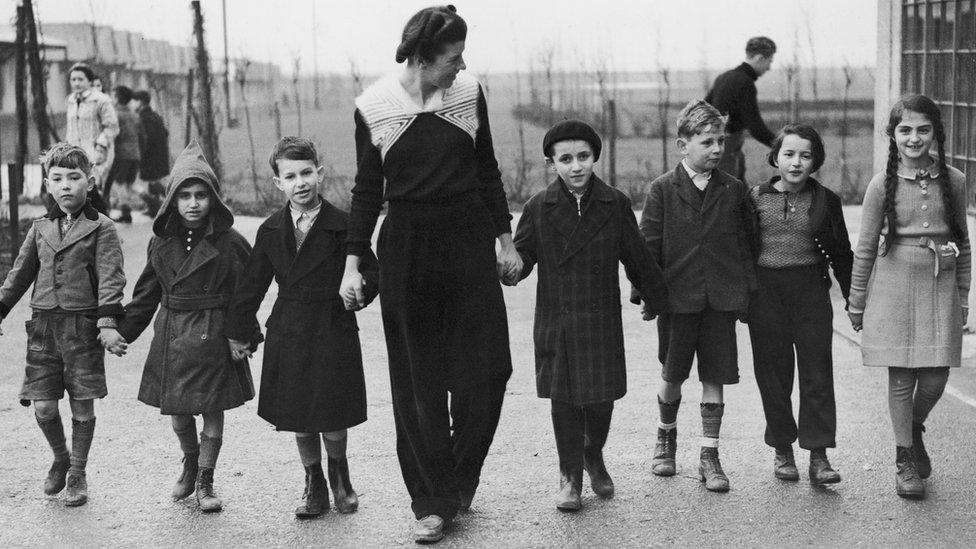
- Published27 January 2018
